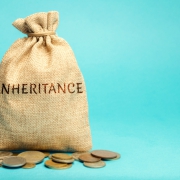COVID-19 Takes Toll on Senior Living Workforce
Fears that provisions in a coronavirus-related relief action by the US government could have severely curtailed the workforce in senior assisted living, independent living, memory care, and continuing care retirement communities provide a cautionary tale. The bill, HR 6201, is a multi-billion dollar aid package known as Families First Coronavirus Response Act. The bill has recently been signed into law by the US President. Influential leaders, CEOs, and corporate Presidents in the senior care and housing industry addressed facility workforce concerns directly to the House Speaker Pelosi (D-CA) and Senate Majority Leader McConnell (R-KY) before the passing of H.R.6201.
The Families First Coronavirus Response Law expands unemployment and Medicaid benefits, provides for free coronavirus testing, and mandates paid sick leave and childcare. Now that schools have closed throughout the country for an indefinite time, the fear is that many senior care workers will, unsurprisingly, put their family before their healthcare worker employment. A reprieve of sorts was added before the law being enacted, which states that only certain employees can qualify for paid sick leave. Because of these loopholes, healthcare workers like first responders, and hospital and nursing home staff are ineligible for paid sick leave per the Families First Coronavirus Response Law (FFCRL) amid fears of staffing shortages among medical providers.
Healthcare worker exemption from some FFCRL benefits is a relief to the senior housing industry but by no means mitigates other workforce challenges during the coronavirus pandemic. The pervasiveness of this contagion means that healthcare workers will be exposed to, and some will fall ill with full-blown coronavirus symptoms and illness. Obviously, in these cases, the healthcare worker will be removed from the senior living facility for quarantine and recovery and to protect the facility’s residents and staff. One coronavirus confirmed healthcare worker begins a domino effect within a facility. Regular operations become short-staffed, and operators face the Centers for Disease Control and Prevention (CDC) protocols that co-workers must also face quarantine.
Beyond coronavirus exposure, symptoms, and the diagnosed virus itself, there is the problem of how healthcare workers respond in a pandemic. The non-stop news and social media coverage of the coronavirus has put many Americans on edge, including health care workers. In a crisis, some people respond logically and calmly, while others may become fearful of their own circumstances and respond emotionally. Most healthcare workers would put their own family’s health needs and care before any employment, and in a free society, there is nothing to compel them to stay in a job if they choose to tend first to their own family.
If your loved one is in a senior living facility, what can you do to mitigate the negative consequences of workforce disruption due to the coronavirus? In the short term, if you are able and your senior is well enough, you can put them under your care. Beyond family care, unless you have the resources for private pay at any cost, you, like the rest of us, are in the system and have to wait out the virus and its effects. There is no guarantee moving forward how the coronavirus will play out in senior living communities, America, and around the world.
One of the few things you do have control over is to assure your loved one has proper legal documents for end of life decisions. Take the time to review them to ensure they are in order. A do not resuscitate order (DNR), durable medical power of attorney, and end of life wishes should be on file with your loved ones living facility and the local hospital. Additional legal copies of these documents should remain in your car or on your person in the event a facility is unable to locate the paperwork. Preparing for the worst-case scenario is a harsh reality; however, it could make the difference between chaotic suffering and a peaceful passing.
We can help draft appropriate documents for you and your loved ones.
If you have questions or need guidance in your planning or planning for a loved one, please do not hesitate to contact our office by calling us at (318) 255-1760.




